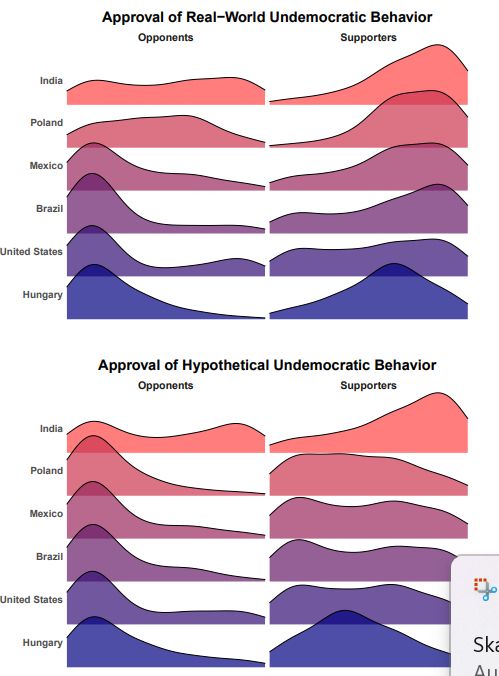
Against the surge of conjoints and other hypothetical experiments in relation to democratic backsliding, we study the consequences of using hypotheticals versus real-world scenarios.
osf.io/preprints/os...
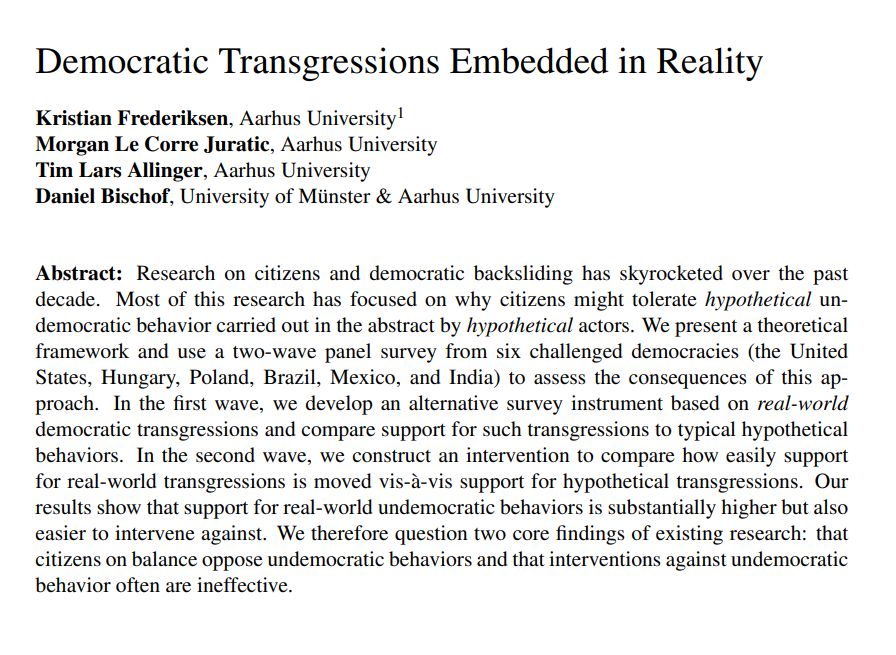
Against the surge of conjoints and other hypothetical experiments in relation to democratic backsliding, we study the consequences of using hypotheticals versus real-world scenarios.
osf.io/preprints/os...
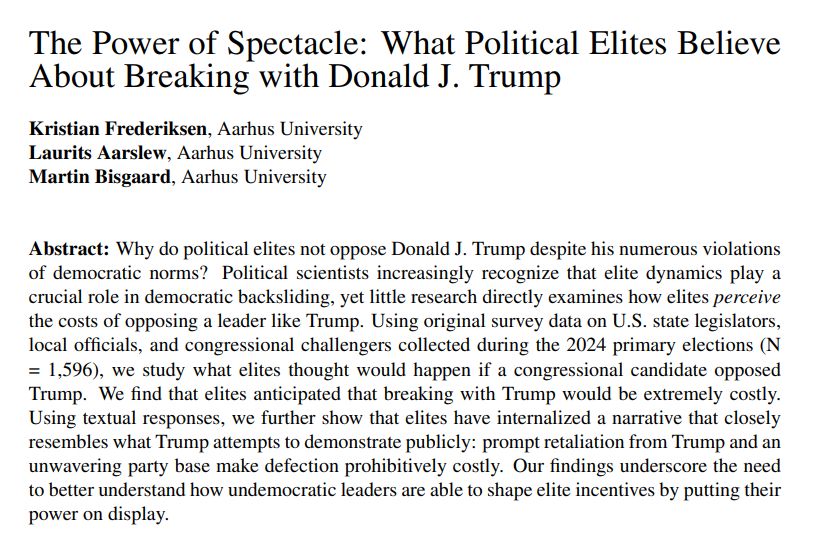
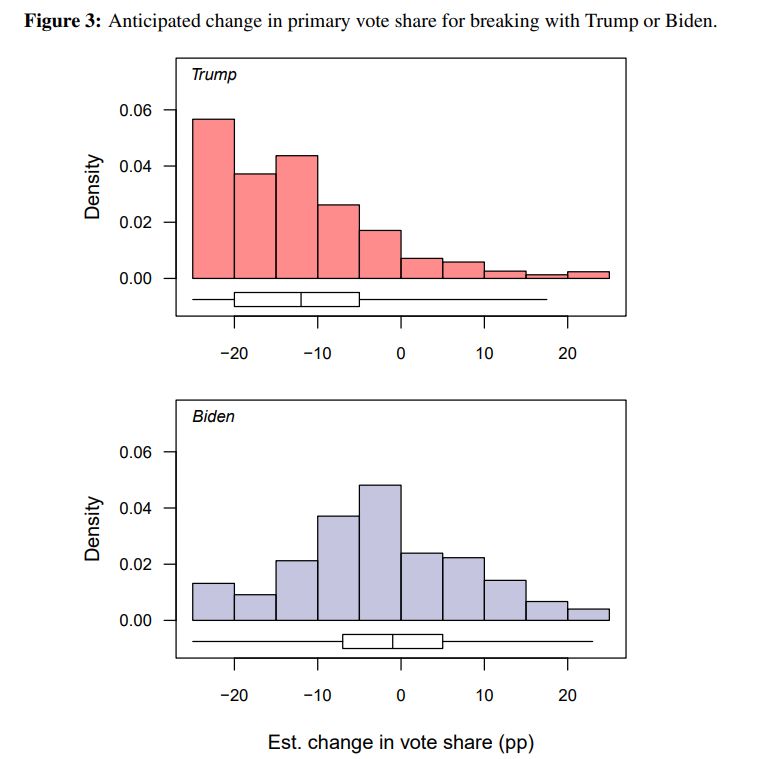
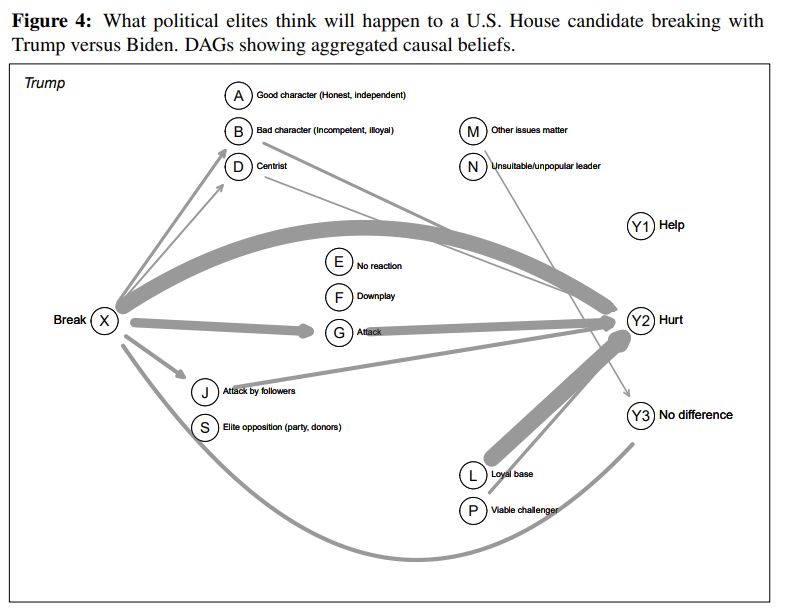
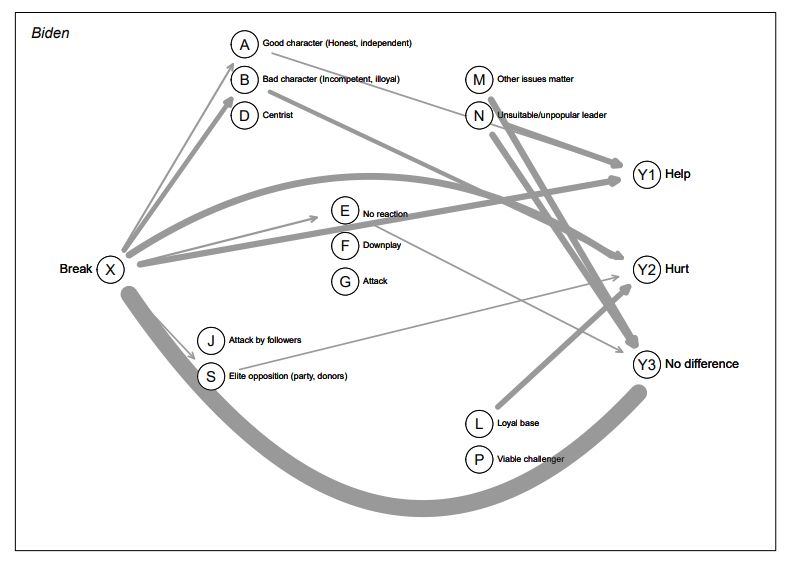


www.cambridge.org/core/journal...
There is a list of all undem behaviors across studies in the SI (screenshot below). Think you're right there; perhaps a specific one tied to partisanship? The ones below are violations of core principles more detached from that.

www.cambridge.org/core/journal...
There is a list of all undem behaviors across studies in the SI (screenshot below). Think you're right there; perhaps a specific one tied to partisanship? The ones below are violations of core principles more detached from that.





I show what the title suggests using a large amount of survey experimental evidence. Thread below.
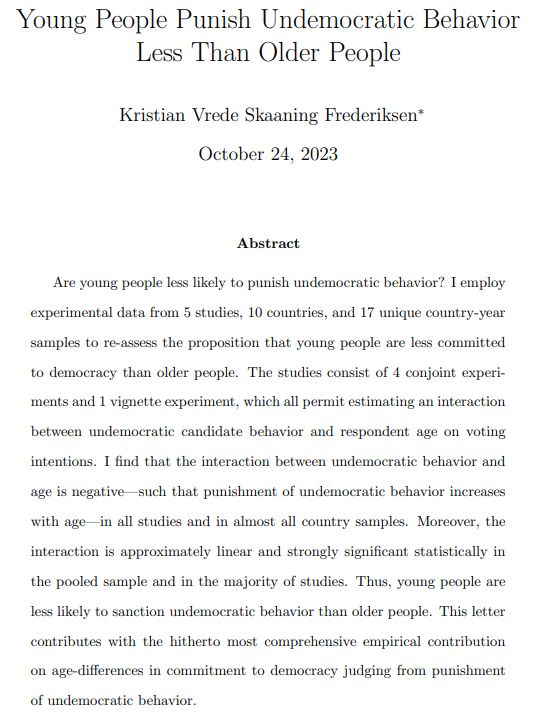
I show what the title suggests using a large amount of survey experimental evidence. Thread below.





